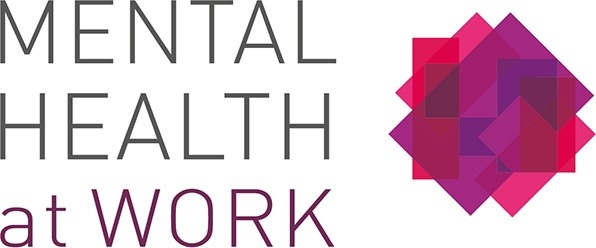Loneliness has been announced as the theme for Mental Health Awareness Week 2022, drawing on evidence from the Mental Health Foundation’s research into mental health during the coronavirus pandemic. This indicated that more of us experienced loneliness in the UK as the pandemic continued and by Feb 2021 this was over twice the pre-pandemic level at 26%. In addition, research by the British Red Cross showed that 41% of adults feel lonelier since the start of the initial lockdown. Loneliness and mental health are closely linked and we know that it has a negative impact on your health and wellbeing
We also know there are many myths about loneliness and that the workplace has an important role to play in encouraging discussion about the topic to help remove some of the stigma; being alone, loneliness and social isolation are not the same and neither is loneliness caused by a lack of social skills.
Why Does Loneliness Matter to the Workplace?
Many employers will be starting to consider how to support Mental Health Awareness Week, which runs from May 9th-15th within their workplaces. Whilst consideration around mental health should be an integral part of working life every week of the year, this provides an opportunity for workplaces to focus on some of the current concerns around loneliness, understand the impact on mental wellbeing and the practical steps to address it.
In 2017 in the UK reported that 9 million people were lonely some or all of the time and the first Minister of Loneliness was appointed. The continuation of remote or hybrid working in many sectors will have an impact on employees who feel isolated and experience loneliness at some point. There may also be employees who are concerned about loneliness in their family and friends network, who would benefit from a broader discussion on practical steps and support signposting.
How Can Organisations Support Employees Experiencing Loneliness?
At Mental Health at Work, we think that knowing our colleagues and role modelling open conversations about how we are feeling, is vital. Ensuring that there are regular and open communication channels is a good first step. If you have team check-ins, why not begin one during #MHAW22, asking each employee to suggest possible improvements to communication amongst their teams. Maybe introduce discussions around how the workplace could feel more inclusive and communicative, how working practices could improve to enable a greater feeling of belonging.
Most Effective Ways For Signposting Loneliness?
This week is also an opportunity to raise awareness of signposting and support both within your company, including your Employee Assistance Programme (EAP) and private healthcare and externally. Taking the time to develop signposting specifically for Loneliness will be most effective, particularly in the early stages as part of preventative action.
If you are a client of Mental Health at Work, access to signposting guides are a part of our partnership, but if you need some ideas to get started, the charity CALM has set up specific call lines for loneliness between 5pm and midnight everyday and there are many services which target particular life stages, including ; The Mix ( under 25s) and Silverline ( over 55) along with Mumsnet, Carers UK , The Marmalade Trust and many more. Consider if your signposting is supportive of the broader D&I initiaitives in your organisation, recognising the different requirements across race, ethnicity and gender.
How to Increase the Impact of Signposting
Signposting as a standalone activity isn’t particularly effective, but combining the right signposting with tailored interventions and events will increase both awareness and impact. either in its own right or part of a broader programme which supports meaningful conversations and relationships.
An Employee Interest Group or a network of MHAW Mental Health Allies®, with roles as expert listeners and signposters, can support events around the most pressing themes in your business. This could involve individuals who are comfortable to share their personal stories, ‘masterclass’ style events on a particular aspect of workplace mental health, guidance on how individuals can manage their own mental health and, of course, interweaving the theme of loneliness.
Allyship Around the Mental Health Agenda
Wearing a Green Ribbon is a symbol of your support for the mental health agenda whether you are at home or in the office and there is also a downloadable virtual green ribbon.
In purchasing green ribbons you are also making a donation to the Mental Health Foundation and their work to support good mental health for all. As an organisation committed to the mental health of your people you may be interested in finding out how you can support the Mental Health Foundation in it’s mission to help people understand, protect and sustain their mental health. You can make contact at corporate@mentalhealth.org.uk or we would be happy to introduce you.
The Mental Health Foundation also produces many ‘How to’ guides around mental health, which are useful guides to make available for individuals to help them support and manage their own mental health.
The Gift of Listening
Our message for the workplace is that we need to talk about our mental health more, through open, non-judgmental conversations, and ‘loneliness’ might be the introductory theme to do this. The benefits of noticing and acting can have a significant impact for our workplaces, and to thoroughly do this we need to get to know people better. It is the conversation that is important ………. and it can be about anything. Giving the gift of listening to a colleague in many cases is enough to enable them to empty their ‘bottle’, but knowing where and how to signposting for support, if needed, extends the gift to make a lasting impact.

